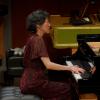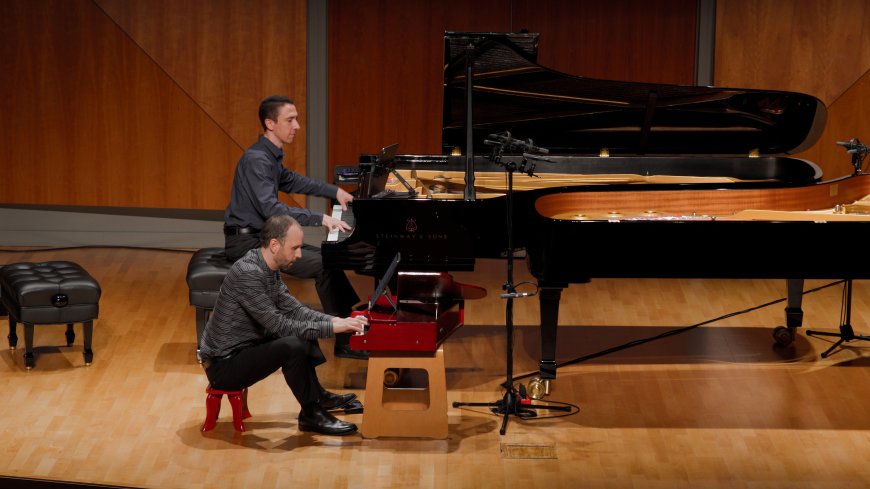
I did not have the honor of knowing composer and pianist Sarah Gibson. Yet from the first hush in Colburn’s Thayer Hall on July 14, I felt admitted to the circle that did know her. A Concert for Sarah, presented by LA’s Piano Spheres concert series, celebrated Gibson one year after her passing. During the performance, I was privy to the heartwarming stories and beautifully brilliant sounds Gibson left behind.
Gibson’s career was incandescent and all too brief. South Carolina-born, Georgia-raised, USC-trained, she brought a uniquely joyful aesthetic to LA’s new music scene. She co-founded the duo HOCKET with pianist Thomas Kotcheff, wrote for ensembles nationwide, and mentored students at both Cal State Long Beach and the LA Philharmonic’s Composer Fellowship Program. After passing at age 38, the musical catalogue she left behind is admired for both its economical craft and buoyant, colorful spirit.
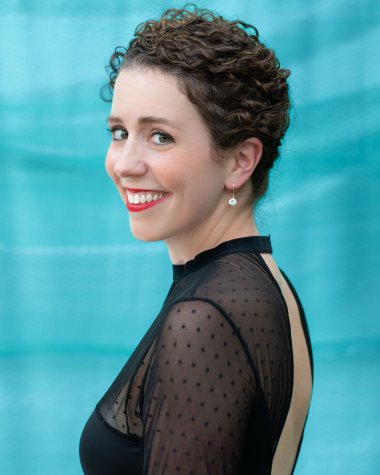
The evening opened with Every Something for prepared piano. (A prepared piano is altered with screws, rubber, paper, or other materials, yielding new and unexpected sounds.) Gentle loops crackled into energetic bursts — intersecting postminimalist sensibilities with pop song fragments, profound yet instantly approachable. Later, Gibson’s past collaborator Thomas Kotcheff performed a medley of Dale Trumbore’s in her lifetime and Gibson’s The Pepper Tent, finally receiving its premiere 10 years after its commission. Side by side, the pieces traced ambiguously poignant harmonies that bloomed into one of Gibson’s hallmarks: concise means framing moments of purest exuberance.
Gibson’s art thrives most when performed collaboratively. Monday’s concert underlined this fact. A video excerpt showed Gibson sharing a single piano with Kotcheff and Grammy-nominated pianist Vicki Ray in a performance of George Crumb’s Celestial Mechanics. Their hands flew across — and inside — a single piano in an intricately choreographed dance. Later, pianists Nic Gerpe and Todd Moellenberg tackled Gibson’s our eyes once watered and Aria, the latter pitting toy piano plinks against concert-grand thunder — the performance was humorous without condescension, virtuosic without swagger. Everywhere, two or three sets of hands worked as one, mirroring a composer who built her career on collaboration.
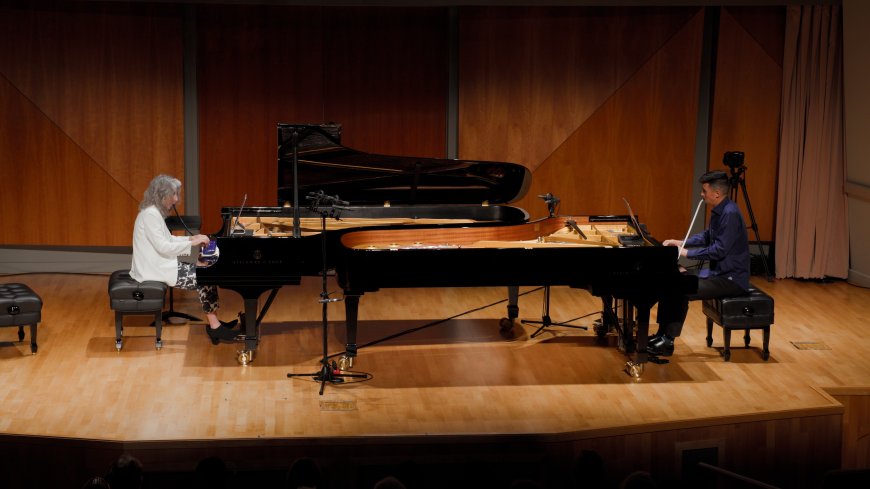
More than once, Gibson’s pieces conjured distinctive musical landscapes within moments of their beginning. Our eyes once watered began at the threshold of silence, its drones breathing like a distant choir. The sonic atmosphere of Thayer Hall seemed to realign itself to Gibson’s design. Her materials — repeated intervals, a sudden glissando — were modest, yet the worlds they conjured were vast and evocative. Donald Crockett’s gentle Elegy for Sarah, one of the few works performed by another composer during the concert, echoed that duality of restraint and dimension: viola, piano, and antique cowbells tracing tender, unpretentious lines.
Throughout the evening, the audience answered with thoughtful quietude: long pauses before applause, an audible exhale here, a murmur of approval there, soft laughter when the toy piano’s ping met the Steinway’s boom. Piano Spheres’ Jeff Gauthier recalled Gibson crying for joy at a first rehearsal of one of her pieces; on Monday the tears were mostly checked, but the hush felt just as resonant.
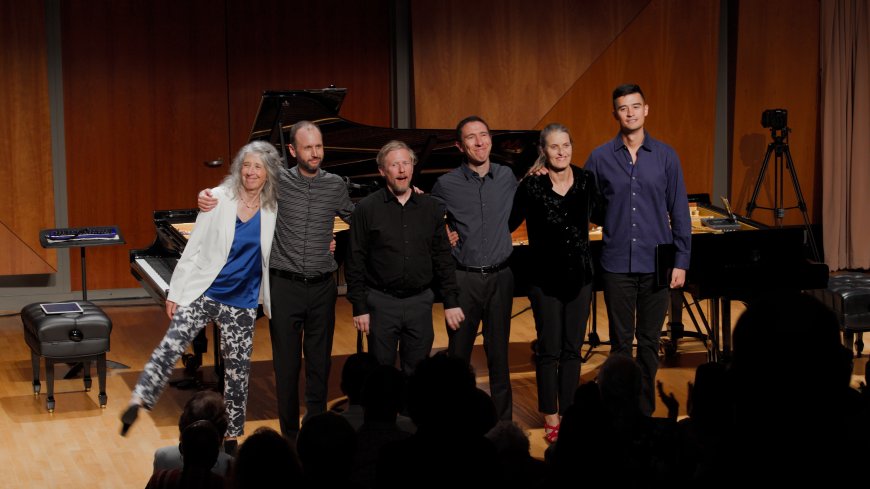
The night closed with Outsider. Ray and Kotcheff traded crystalline phrases that swelled into a clangorous finale, a last flare of Gibson’s raucous delight. The audience was brought to its feet by the final musical surge. We applauded long and loud, then lingered, as if reluctant to leave behind the sonic world Gibson’s music had conjured for us.
For those who were unfamiliar with Gibson and her music prior to Monday’s tribute, the next step is clear: spend time with her music. It’s where her kaleidoscopic compositional voice and crystalline pianism still speaks. Ray said it best at the concert: "Serious fun. That is Sarah Gibson." Diving into her musical catalogue will be exactly that, serious fun. Few privileges rival discovering a composer’s spirit through the music they leave behind. By every account, Gibson’s spirit remains generous, playful, and very much alive in the music.




